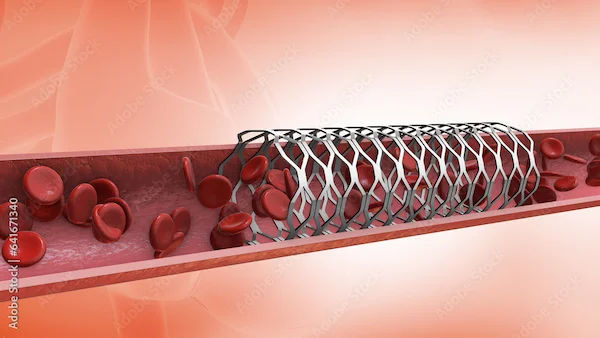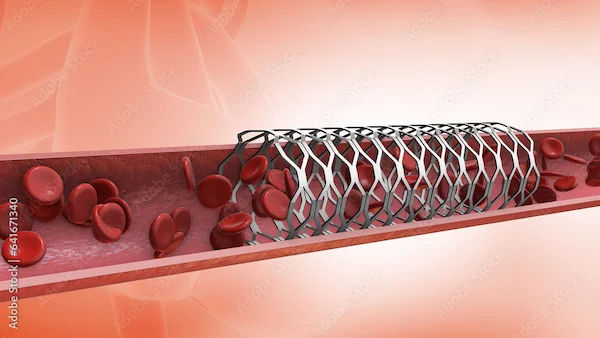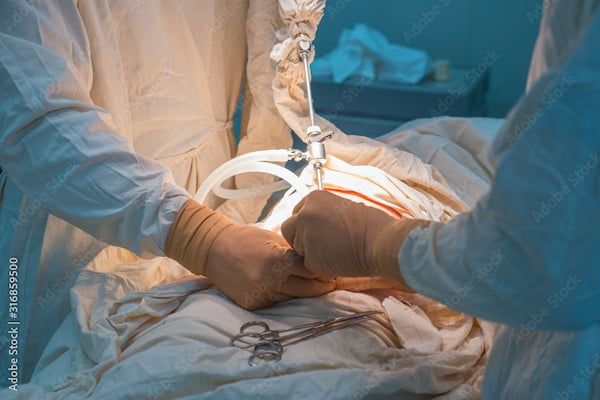Post Bypass Surgery Care
Recovering from bypass surgery? Find essential tips for post-operative care, diet, exercise, and lifestyle changes to support your heart health.

Written by Dr.Sonia Bhatt
Last updated on 20th Jul, 2025

Introduction
Undergoing bypass surgery is a major step toward improving heart health, but the journey doesn’t end in the operating room. Proper postbypass surgery care is crucial for a smooth recovery and longterm wellbeing. Whether you’re a patient or a caregiver, understanding what to expect and how to manage recovery can make a significant difference.
This guide will walk you through essential aspects of postbypass care, including wound care, diet, exercise, medications, and emotional wellbeing, in simple and supportive terms.
Understanding Bypass Surgery and Recovery
Bypass surgery (Coronary Artery Bypass Grafting or CABG) helps restore blood flow to the heart by creating new pathways around blocked arteries. After surgery, your body needs time to heal, and following medical advice is key to preventing complications.
What to Expect After Surgery?
- Hospital Stay (5-7 days): You’ll be monitored in the ICU initially, then moved to a recovery room.
- Pain & Discomfort: Mild chest pain, fatigue, and soreness around the incision site are normal.
- Limited Mobility: You’ll need help with daily activities initially.
- Follow-Up Visits: Regular checkups ensure proper healing.
Essential Post-Bypass Care Tips
Essential Post-bypass care tips are:
1. Wound Care & Hygiene
- Keep the incision area clean and dry to prevent infection.
- Avoid scrubbing the wound; gently wash with mild soap and water.
- Watch for signs of infection (redness, swelling, pus, fever) and report them to your doctor.
- Wear loose, comfortable clothing to avoid irritation.
2. Medication Management
Your doctor will prescribe medications to:
- Prevent blood clots (e.g., aspirin).
- Control cholesterol (statins).
- Manage blood pressure (betablockers, ACE inhibitors).
- Reduce pain (as needed).
Important:
- Take medicines on time and never skip doses.
- Avoid over-the-counter drugs without consulting your doctor.
3. Heart Healthy Diet
A balanced diet helps in faster recovery and prevents future heart problems.
Eat More:
- Fruits & Vegetables (rich in antioxidants)
- Whole Grains (oats, brown rice, whole wheat)
- Lean Proteins (fish, chicken, beans)
- Healthy Fats (nuts, olive oil, avocados)
Limit or Avoid:
- Salt (to control blood pressure)
- Sugary & Processed Foods (cakes, chips, sodas)
- Saturated & Trans Fats (fried foods, butter, fatty meats)
Tip: Small, frequent meals are easier to digest than heavy ones.
4. Gradual Physical Activity & Exercise
- Start with short walks (5-10 minutes) and gradually increase.
- Avoid heavy lifting (more than 5 kg) for 6-8 weeks.
- Cardiac rehabilitation programs help strengthen the heart safely.
- Stop if you feel dizzy, short of breath, or chest pain.
5. Emotional Well-Being & Mental Health
- Feeling anxious or depressed after surgery is common.
- Talk to family, friends, or a counselor.
- Practice relaxation techniques (deep breathing, meditation).
- Join a support group for heart patients.
Consult Specialists For personalised Tips
Warning Signs to Watch For
Contact your doctor immediately if you experience:
- Severe chest pain
- Difficulty breathing
- High fever (over 101°F)
- Excessive swelling or bleeding from the incision
- Irregular heartbeat
Long-Term Lifestyle Changes for a Healthy Heart
Bypass surgery is a second chance—make the most of it by adopting heart friendly habits:
- Quit smoking if you currently do.
- Moderate your alcohol consumption to one drink per day for women and two for men.
- Achieve and maintain a healthy weight.
- Get regular check-ups for your blood pressure and cholesterol.
- Incorporate daily activity: aim for at least 30 minutes of walking each day.
When to Consult a Doctor?
If you have concerns about your recovery, Apollo 24|7 makes it easy to:
- Book a followup consultation with a cardiologist.
- Get prescriptions refilled online.
- Schedule lab tests to monitor heart health.
Final Thoughts
Recovering from bypass surgery takes time, patience, and discipline. By following medical advice, eating right, staying active, and keeping a positive mindset, you can regain strength and enjoy a healthier life. Remember, you’re not alone—your healthcare team is there to support you every step of the way.
Consult Top Cardiologists
Consult Specialists For personalised Tips

Dr. Anand Ravi
General Physician
2 Years • MBBS
Bengaluru
PRESTIGE SHANTHINIKETAN - SOCIETY CLINIC, Bengaluru

Dr. Bhukya Pavan Kalyan
General Physician
5 Years • MBBS DNB Paediatrics
Bengaluru
PRESTIGE SHANTHINIKETAN - SOCIETY CLINIC, Bengaluru

Dr. Tripti Deb
Cardiologist
40 Years • MBBS, MD, DM, FACC, FESC
Hyderabad
Apollo Hospitals Jubilee Hills, Hyderabad
Dr Moytree Baruah
Cardiologist
10 Years • MBBS, PGDCC
Guwahati
Apollo Clinic Guwahati, Assam, Guwahati

Dr. Zulkarnain
General Physician
2 Years • MBBS, PGDM, FFM
Bengaluru
PRESTIGE SHANTHINIKETAN - SOCIETY CLINIC, Bengaluru
Consult Top Cardiologists

Dr. Anand Ravi
General Physician
2 Years • MBBS
Bengaluru
PRESTIGE SHANTHINIKETAN - SOCIETY CLINIC, Bengaluru

Dr. Bhukya Pavan Kalyan
General Physician
5 Years • MBBS DNB Paediatrics
Bengaluru
PRESTIGE SHANTHINIKETAN - SOCIETY CLINIC, Bengaluru

Dr. Tripti Deb
Cardiologist
40 Years • MBBS, MD, DM, FACC, FESC
Hyderabad
Apollo Hospitals Jubilee Hills, Hyderabad
Dr Moytree Baruah
Cardiologist
10 Years • MBBS, PGDCC
Guwahati
Apollo Clinic Guwahati, Assam, Guwahati

Dr. Zulkarnain
General Physician
2 Years • MBBS, PGDM, FFM
Bengaluru
PRESTIGE SHANTHINIKETAN - SOCIETY CLINIC, Bengaluru




